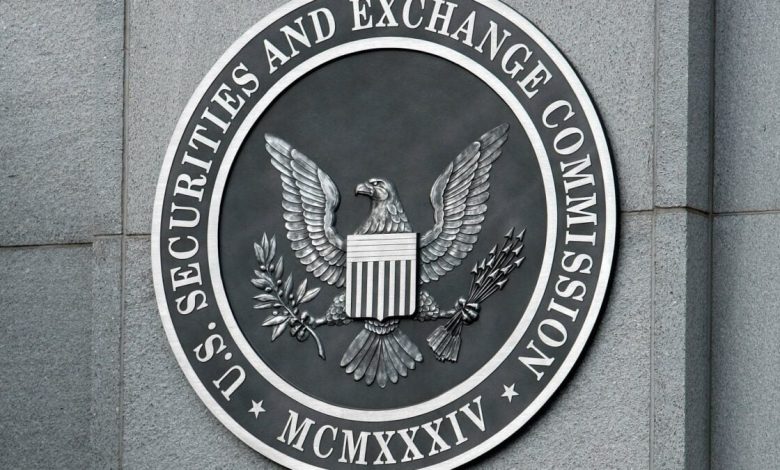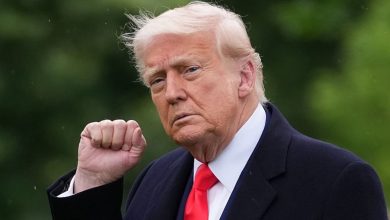The SEC Shifts Gears on Crypto

The Securities and Exchange Commission made its biggest pro-crypto move yet this week. On Thursday, SEC Chairman Paul Atkins launched “Project Crypto,” an overarching roadmap of the Commission’s approach to regulating cryptocurrency.
The aim of the project, according to Atkins, is to make the United States “the crypto capital of the world” by onshoring crypto asset distributions.
Atkins hopes to do so by updating the Commission’s rules and regulations regarding on-chain software systems, encouraging experimentation with new technology like “tokenization,” and opening the door to the reclassification of most crypto assets as an investment contract rather than a security. The plan also aims to encourage decentralized finance initiatives that operate without intermediaries and “super apps” that integrate payment ability with other functions like social media (one example being Elon Musk’s vision to transform X into an “everything app”).
It’s a huge departure from the SEC’s previous approach to crypto under former chairman Gary Gensler, who became crypto industry’s public enemy number one due to his strict regulatory approach.
Atkins made sure to hammer that point in.
“It’s a new day at the SEC and we are picking up the gauntlet and the challenge that President Trump has laid down,” he told CNBC on Friday.
Trump’s push for crypto legitimization
Gary Gensler’s approach to crypto as SEC chairman was less “laissez-faire” and more focused on compliance. In an effort to protect investors, Gensler’s administration insisted that crypto tokens are overwhelmingly considered securities and are therefore covered under existing legal framework and require full disclosure and SEC registration. That made it especially rough for decentralized finance initiatives. Under Gensler, the SEC launched a wave of lawsuits against crypto exchanges like Coinbase and Binance, claiming that they operated outside the law.
The crypto industry deemed this to be regulatory overreach and claimed that it was pushing American crypto innovation overseas.
In comes Trump, who ran on a pro-crypto campaign in the 2024 presidential election even though he was once a skeptic himself, claiming that crypto was “a disaster waiting to happen” back in 2021.
One of Trump’s first courses of action following the inauguration was to establish a federal crypto working group, chaired by the President’s AI and crypto czar David Sacks. That group just released a 160-page report on Wednesday detailing policy recommendations.
Trump also recently signed into law the Genius Act, a bill that establishes the first federal regulatory framework for stablecoins, a type of cryptocurrency that is designed to have less volatility than traditional forms by pegging it to the U.S. dollar.
The Genius Act was a huge win for the crypto industry, allowing banks, credit unions, and other institutions to issue stablecoins.
Although Atkins’ SEC and the Trump administration at large are ushering in an era of cryptocurrency regulation with some consumer protections, still the roadmap for it seems to involve minimal red tape. The focus instead is overwhelmingly on legitimizing on-chain technology in the financial system.
And that seems to be working: A huge array of big companies are rushing to explore blockchain projects. On Thursday, J.P. Morgan announced that it will be partnering with Coinbase to allow crypto purchases via clients’ Chase credit cards, and Bank of America CEO Brian Moynihan said earlier this month that the bank is planning on launching a stablecoin.
Murky waters
Crypto enthusiasts hype its ability to streamline financial processes by cutting out intermediaries and say that it helps give anyone across the globe access to financial accounts. They also praise the privacy and anonymity it provides.
But that obviously comes with downsides.
Critics view cryptocurrency as a threat to the financial system: the same mechanisms crypto uses to streamline and increase accessibility to financial services can also be used for money laundering, sanctions evasions, and scams. According to the FBI, Americans have lost over $3.9 billion to about 150,000 crypto fraud schemes in 2024 alone.
Crypto is also notorious for its volatility, prone to crashes, and has been mired in controversy, notably since the Sam Bankman-Fried scandal.
And crypto skeptics in Congress are also pointing out that the Trump administration’s regulatory push towards legitimization overlooks one glaring problem: Trump’s own conflict of interest.
The Trump family runs several crypto projects, from crypto banking platform World Liberty Financial that offers a stablecoin called USD1 to an empire of memecoins and a bitcoin mining business co-founded by Eric Trump.
Not only the Trump family but his entire cabinet’s burgeoning crypto empire is viewed by many critics as a blurring of lines between personal business interests and official policy. The regulatory actions taken so far could be seen as self-dealing.
“Trump is using the presidency to enrich himself through crypto, and he’s doing it in plain sight,” one of Trump’s biggest critics on the matter, Sen. Elizabeth Warren, told Vanity Fair last week.




